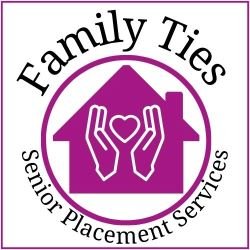A Family’s Unexpected Journey: Compassion, Community, and Caregiver Self-Care
In Emma & Bruce Willis: The Unexpected Journey—a deeply personal ABC News special hosted by Diane Sawyer—Emma Heming Willis opens her heart, sharing the emotional and daily realities of caring for her husband, Bruce Willis, who is confronting frontotemporal dementia (FTD). The special aired on August 26, 2025, and began streaming the following day on Disney+ and Hulu.
Moments of Grace Amid Challenge
Despite the progression of dementia, Emma shared that Bruce is still physically healthy—he walks, he smiles, and on rare occasions, she even sees that familiar hearty laugh or mischievous twinkle in his eye. These fleeting moments, she admits, “transport” her—but they’re precious and bittersweet. Emotionally, Emma recalls the initial shock—like “free-falling”—when the diagnosis finally came into clarity.
Caregiving Alone, Then Finding Support
In the early days, Emma took on 24/7 caregiving, isolating her family from social gatherings and leaning entirely on herself. It took a concerned stepdaughter to help her recognize the emotional spiral she was in—and ultimately prompted her to seek help. She brought in professional caregivers and prioritized her own needs, even stepping back from caregiving to manage depression. This journey led her to a stronger, more sustainable caregiving path.
Building a Community and a Roadmap
Emma’s advocacy extends far beyond her own story. She’s launching her book, The Unexpected Journey: Finding Strength, Hope and Yourself on the Caregiving Path, due September 9, 2025. The book compiles insights from 25 caregiving specialists—and serves as both a roadmap and a lifeline for those feeling alone in the caregiving journey.
She’s also partnering with organizations like the Association for Frontotemporal Degeneration and has founded wellness initiatives such as Make Time Wellness and the Make Time Podcast to raise awareness and support fellow caregivers. Previously, she shared a powerful message after the deaths of Gene Hackman and his wife, Betsy Arakawa: “Caregivers need care, too. Period. Full stop.” This statement—born of compassion and clarity—continues to resonate across caregiving communities.
Care for the Caregiver: Guidelines for Self-Care and Outreach
Recognize overload early – Emma’s story shows us how easy it is to feel trapped. If nights are sleepless, emotions heavy, or the household isolated—pause and ask for help.
Start with one support – It can be a trusted friend, relative, or professional. Emma began to heal mentally when one voice—her stepdaughter’s—spoke up. Oftentimes, that’s all you need to begin seeking external support.
Share your story – Online groups, local senior centers, or charity organizations (like Alzheimer’s Associations) offer community and practical resources for emotional and financial support.
Prioritize well-being – Even small acts—exercise, meditation, therapy—can help sustain your emotional and physical health.
Educate yourself – Understand the unique aspects of disease like FTD; Emma’s book is one such guide, along with expert-led organizations that can offer clarity and future planning.
Lean on experts – Professional caregivers, therapists, occupational therapists—like Teepa Snow in Emma’s case—can offer guidance on care techniques and self-care strategies.
Watch the Full Special
To experience Emma’s candid interview and the full arc of her family’s journey, you can watch the ABC News special:
https://www.youtube.com/watch?v=wY_w_vPoz9s&pp=4gcNEgtjaGF0Z3B0LmNvbQ%3D%3D
Looking for local support? Simply reach out and we can connect you with local resources as you navigate your journey too.


